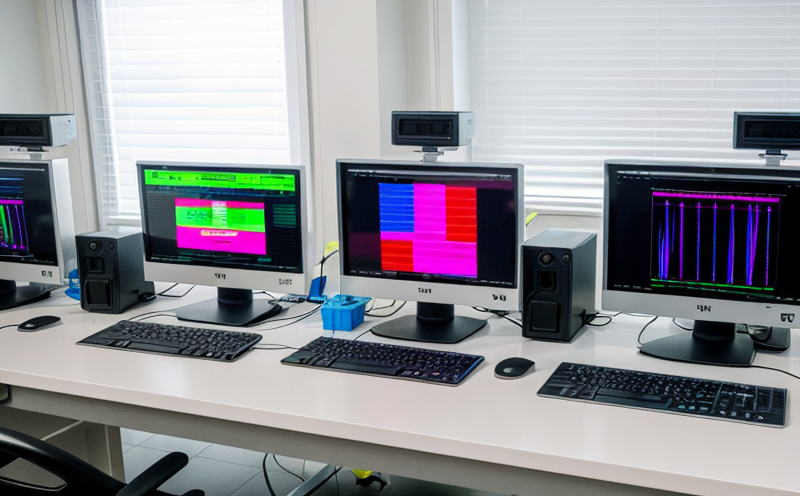WHO Viral Detection in Drinking Water and Food Testing
The World Health Organization (WHO) guidelines on viral detection in drinking water and food are critical to ensuring public health. The presence of viruses, particularly enteroviruses like norovirus and rotavirus, can lead to severe gastrointestinal illnesses if not properly managed. This service focuses on detecting these pathogens using advanced techniques that align with WHO standards.
The process involves multiple stages: sample collection, preliminary screening for the presence of viruses, nucleic acid extraction, reverse transcription, and polymerase chain reaction (RT-PCR) amplification. The goal is to quantify viral loads accurately and provide actionable insights for water treatment facilities and food processing plants.
For drinking water samples, our laboratory utilizes a combination of filtration methods followed by elution in buffer solutions. This ensures that even low concentrations of viruses are captured efficiently. In the case of food samples, we employ homogenization techniques to release viral particles from cells before proceeding with nucleic acid extraction.
The choice of reagents and primers is crucial for ensuring accuracy and specificity. We adhere strictly to WHO-recommended protocols using reverse transcription real-time PCR (RT-qPCR), which allows for precise quantification down to single genome copies per mL or g, depending on the sample type.
Our team of experts ensures that all tests are conducted under controlled conditions compliant with international standards such as ISO 17025. This guarantees reliability and reproducibility of results. Additionally, we provide comprehensive reports detailing methodology used, raw data, and interpretation of findings to help clients make informed decisions regarding their water treatment processes or food safety protocols.
In summary, our WHO viral detection service offers a robust approach towards safeguarding public health by identifying potential risks early enough so that necessary actions can be taken promptly. By leveraging state-of-the-art technologies and adhering closely to global best practices, we aim not only to meet but exceed expectations set forth by regulatory bodies like the World Health Organization.
Our services extend beyond mere detection; they also include advising on improvements needed based on our findings. Whether it’s adjusting chemical dosages in water treatment plants or implementing stricter hygiene measures during food production, our goal is always to contribute positively towards creating safer environments for everyone.
Why It Matters
Ensuring the safety of drinking water and food supplies from viral contamination is paramount due to its direct impact on human health. Viruses such as norovirus, hepatitis A virus (HAV), and rotavirus can cause severe gastrointestinal symptoms which may result in hospitalization or even death among vulnerable populations if left unchecked.
The WHO guidelines emphasize the importance of monitoring these pathogens because they are highly infectious and capable of surviving for extended periods within various environments. Proper detection methods allow water utilities and food businesses to take preventive measures promptly, thereby minimizing exposure risks to consumers.
Regular testing helps maintain compliance with regulatory requirements set forth by health authorities worldwide. It demonstrates a commitment to maintaining high standards of hygiene and quality assurance which builds trust among customers and stakeholders alike.
Scope and Methodology
The scope of our WHO viral detection service covers both drinking water and food samples, focusing on the identification and quantification of specific viruses that pose significant health hazards. For drinking water analysis, we target enteroviruses, which include norovirus and rotavirus, as well as adenovirus types 40/41 - common causes of acute gastroenteritis.
In food testing, our focus is on detecting hepatitis A virus (HAV) as it often contaminates shellfish or undercooked meats. Additionally, we examine for other enteric viruses that could compromise the safety of processed foods like pasteurized milk products or ready-to-eat meals.
The methodology employed follows stringent guidelines provided by the World Health Organization (WHO). It begins with appropriate sampling techniques tailored to different matrixes (water vs food), followed by preliminary screening tests designed specifically for identifying viral RNA/DNA sequences. Once identified, further amplification steps are carried out using quantitative reverse transcription PCR (qRT-PCR) technology capable of detecting extremely low levels of target pathogens.
Our laboratory adheres strictly to ISO/IEC 17025 accreditation requirements ensuring that all procedures meet internationally recognized quality standards. This commitment includes rigorous quality control measures at every stage from sample receipt through final reporting, guaranteeing accurate and reliable results.
Industry Applications
The application of WHO viral detection services extends across multiple industries where public health is a priority. Water treatment facilities rely on our expertise to monitor their systems continuously for the presence of harmful viruses before they reach consumers’ taps. This proactive approach helps prevent outbreaks associated with contaminated drinking water sources.
Food manufacturers benefit greatly from regular testing conducted at different stages throughout production lines ensuring compliance with international safety standards like ISO 22000. By detecting contamination early, they can implement corrective actions swiftly preventing recalls and safeguarding brand reputation.
Agricultural producers also use our services to ensure their irrigation systems do not contribute to pathogen spread thereby protecting crops from potential infection. Hospitals and healthcare facilities employ similar methods internally within their wastewater management practices helping them maintain biosecurity standards.
Furthermore, this service supports research institutions conducting studies on vaccine efficacy or new therapeutic approaches targeting viral diseases. Accurate data derived from these tests plays a crucial role in advancing medical science towards more effective treatments.





